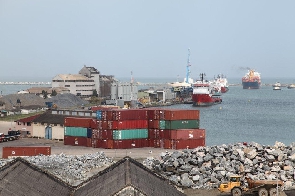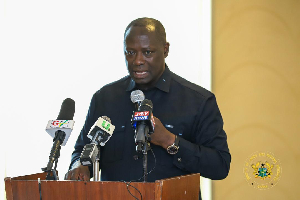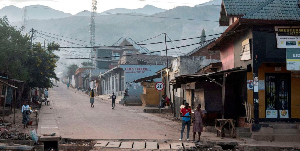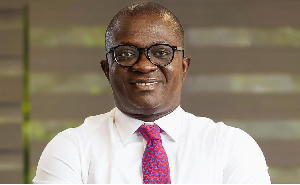In the pursuit of a more equitable and efficient port fee structure, John Mahama's blueprint emphasises the critical need for active engagement with citizens and stakeholders.
This initiative goes beyond mere policy adjustments; it calls for a collaborative approach that harnesses the insights and experiences of those directly affected by port fees importers, exporters, and everyday Ghanaians.
The first step in this call to action is fostering open communication channels. Town hall meetings, community forums, and digital platforms can serve as valuable venues for dialogue, allowing citizens to voice their concerns, share their experiences, and contribute ideas for improvement.
By listening to the needs and suggestions from the ground up, Mahama's next administration can better understand the complexities of the port fee system and its impact on the economy.
Moreover, engaging with industry stakeholders, including shipping companies, import associations, and logistics experts, is vital.
Collaborative workshops and roundtable discussions can help identify inefficiencies and propose solutions that benefit all parties involved.
Stakeholders bring a wealth of knowledge and experience that can inform policy decisions, ensuring that changes are practical and sustainable.
Additionally, this engagement should extend to educational campaigns that inform the public about the rationale behind the proposed changes.
Transparency is key; by clearly articulating the benefits of rationalising port fees such as reducing costs for consumers and stimulating economic growth, citizens will be more likely to support and understand the initiative.
Finally, Mahama's blueprint calls for the establishment of a feedback mechanism that allows for continuous evaluation of the new port fee structure. This not only ensures that the system remains responsive to the needs of Ghanaians but also fosters a sense of ownership within the community.
When citizens feel their voices matter, they are more likely to engage with the process and advocate for positive change.
In summary, the rationalisation of port fees is not merely a policy change; it is a collective journey that requires the active participation of all Ghanaians.
By engaging citizens and stakeholders at every level, John Mahama's initiative can create a more transparent, fair, and efficient port system that ultimately benefits the entire nation.
In conclusion, John Mahama's blueprint for rationalising port fees presents a thoughtful and strategic approach to alleviating the financial pressures faced by importers and the wider Ghanaian populace.
By addressing the complexities of port tariffs and advocating for a more transparent and equitable pricing structure, Mahama aims not only to enhance the competitiveness of Ghana's trade sector but also to foster economic growth that benefits all citizens.
As we continue to navigate the challenges of global trade and economic development, embracing such reforms will be crucial in ensuring that the burdens of importation do not stifle local businesses or diminish the purchasing power of Ghanaians.
I invite you to engage in this vital conversation, share your thoughts on this initiative, and consider how collective action can pave the way for a more prosperous future for our nation.
Opinions of Tuesday, 12 November 2024
Columnist: Anthony Obeng Afrane















